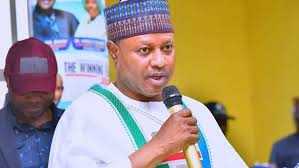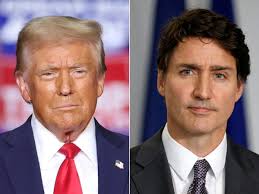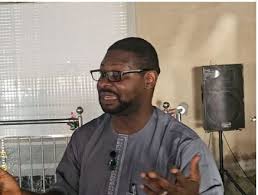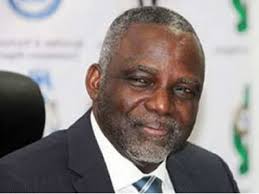How fiscal autonomy works in Enugu East council — Anike
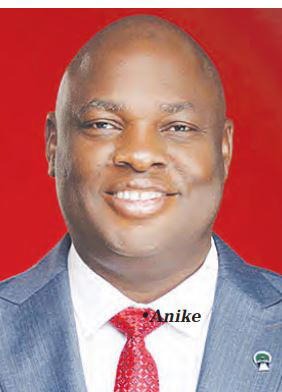
PASTOR Beloved-Dan Anike, the chairman of Enugu East LGA, in this interview said that council fiscal autonomy is working well in Enugu State, adding that the metropolitan council is complementing the state government’s economic and social policies.
What has been your over 100 days experience as the council chairman of Enugu East Local Government?
It has been 100 days full of activities, trying to convert vision to realities, navigate the new environment and connect with the promises made during the campaign and maintain the social contracts with the people. Another influencing factor in the state is the kind of governor we have. Governor Peter Mbah is changing the narratives and politics in Enugu State such that if you’re a public officer, you must rate performance over politics. If you’re not ready to perform, then you won’t even be ready to navigate the scheme and see his break light. So he is a factor that makes everybody to be on their toes, especially the local government because he is working on every ward and so you have to match his strides.
On how the grassroots felt his impact in 100 days
From the word go, we announced that we would introduce what we call City Charter which will not leave anyone behind. We will involve people to increase participation. We invited all communities, not wards, to conduct needs assessment and they stated clearly what they want. Our goals are clear, our major target is human capital development, upon which we now launch what we call the greater tomorrow scholarship for young students and also the One youth, one skill
As part of the greater tomorrow scholarship, 50 students were selected from local schools and they migrated to major highbrow secondary institutions of private and missionary schools, just like a brand of the smart schools that are coming up in Enugu State.
About 1,750 students have been enrolled for WAEC of which about 70 per cent are non-indigenes, only 30 per cent are indigenes of the local government. We still have other educational programmes that are still pending such as the scholarships and bursaries for undergraduates. We have also declared that we want to train nurses as professionals in the health sector and education. These are purely targeted to support the state’s ongoing Primary Health Centres and smart school projects.
On infrastructure, we have commenced the construction of 1.4km road leading to the smart school in Ugwuomu, we have also commenced the construction of 1.2km road leading to a PHC centre at Emene, near Emenite. Drainage and earthworks are ongoing. On power, we said one Ward one transformer and we have 12 wards. So we have 12 transformers which we have distributed and are currently being installed and energized in various wards.
On public participation and open governance, we set up seven committees and I have received five reports of those committees. One was on the Needs Assessment of all our rural roads so as to match them with the state government’s vision of one ward 10km road. The state government has a 60/40 per cent infrastructure financing plan with the local governments, we are even saying if we can get 80/20 per cent rebate having seen the deficit we have on our roads. Our former secretariat building covering over 3,000 square meters of land is being envisaged for the take-off of the Metropolitan School of Health Technology and Nursing, which we are working on now. We have written to the state government for provisional consent for us to proceed with that project. These are some of the projects under three months and in our budget this year, we are going to launch what we call Family Economic Empowerment Program (FEEP) and that will be a component of One youth one skill. We trained about 350 people in various skills and we have about 10 being trained in ANAMCO now in mechatronics. Some people have enrolled in heavy machines training.
They are being paid N70,000 monthly while on training and after one year of training, they will be engaged where they could earn about N500,000 per month. We received over 200 entries because most of our mobilisation and recruitment are done online. In fact, we have other offers from those who want to train people in China and people from even Niger State applied. Our target is human capital but beyond that, we have done foundation-laying for Type1 Public health centers in five communities of Neke-Uno, Obinagu-Nike in Ujudo, the one that is pending is in Nokpa, Ugbene II and Nkpologu. This is to complement the Type2 PHCs that are 12 ongoing in Enugu East Local Government. We look at communities that are far from places where those Type2 PHCs are located and we cite our Type1 Health centres.
On market developments, because we want to decongest Abakpa market, we’re looking at establishing neighbourhood markets in Ugbene II, Umuchigbo, Ogwuagor, and Ibagwa and two markets are already ongoing in Ugwogo – that is the Amankpaka market and the new Orie Ugwogo produce market.
To achieve this, in the next one month we are going to have an investment dialogue because our budget moved from about N5 billion to over N200 billion, which is about 400 per cent increase and it won’t be feasible if we don’t bring in critical investors in this journey. We want to create spaces and bring in investors who will bring in money to grow our economy.
What has been your experience on the fiscal autonomy of the local government councils?
Actually, the local government councils are in charge of their finances. Every remittance goes to the local government purse and every disbursement has been approved by me since September 2024 when I came in. It comes through the joint state account but it goes straight to the designated account of the local government and from salaries to capital expenditures, to overheads, recurrent and other economic
commitments are done by the local government.
Does the state dictate to the local governments how the money is being shared or disbursed; does the state tamper with LG funds in any way?
No, I have told you that all money comes to us and we disburse the money according to our needs. There are obligations we have at the state level, I mean economic obligations like joint ventures with the state such as the 60/40 per cent on road construction and there are others like the 17 local governments coming together for whatever we want to do together; they are obligations on joint economic policies that benefit everyone.

